Editor’s Note: PJ Media Legal Editor J. Christian Adams has a different take on this voter fraud story here.
Last last month, Ohio blogger and political activist Sara Marie Brenner broke the story about potential voter fraud in Columbus, Ohio. Brenner wrote in Human Events that:
Two volunteer poll workers at an Ohio voting station told Human Events that they observed van loads of Ohio residents born in Somalia — the state is home to the second-largest Somali population in the United States — being driven to the voting station and guided by Democratic interpreters on the voting process. No Republican interpreters were present, according to these volunteers.
Last week, Brenner posted interviews she conducted with volunteer poll observers, voters, and Republican campaign workers who witnessed suspicious activities at the Morse Road voting center in Franklin County.
Setting aside for a moment the specific allegations of voter fraud at the Morse Road voting center, it’s important to understand some of the context and the events leading up to the situation at the polls in Columbus. It’s a familiar tale involving the unions, wasted tax dollars, and a vulnerable voting population. One character is Mussa Farah and his Columbus-based Horn of Africa Rescue Committee. A recent article on RFI said that,
For several weeks members of Farah’s group have been spending time in Somali neighbourhoods, like Providence Glen housing, encouraging people to register to vote. Now, a week before election day, they are encouraging people to go vote early to avoid lines on 6 November.
Farah is a controversial figure in the Columbus Somali community. He has been accused of fraud in a government-funded tutoring program he ran. The state pulled his funding and terminated his services, claiming that he falsified forms. In one case, a check for $58,000 from the Ohio Department of Education was made out to Somali American Youth. The address on the check led to a UPS store. The address on another check led to a small apartment.
Farah was a 2009 Ohio Fellow to the Center for Progressive Leadership, where he and other community organizers and union leaders learned to “advance progressive political change in their communities.” A Somali blog highlights the fact that Farah was appointed to the Columbus Community Relations Commission in 2010. That group is devoted to promoting “pluralism” so that “every family feels welcome.”
He also spoke out against the unidentified Columbus Somali who was an unindicted conspirator suspected of raising money for the al-Shabab terror network in Somalia. “I’m very much disappointed with what I heard,” Farah said. “That’s what we have been preventing for the last two years.” He spoke about the vulnerable young people in his community.
“The ideology war is very bad,” Farah said. “It’s the worst. Somebody can just change your mind and tell you if you blow yourself up and things, it’s ideology and ideology is the worst war.”
Within the Columbus Somali enclave there have been accusations that community organizers have been exaggerating their numbers in order to secure larger infusions of government cash and handouts. Farrah also spent time as a census specialist (the guy is everywhere) and has complained that the government is not counting all of the Somalis. Meanwhile, many in the state have complained about state-funded, Islamic-themed charter schools, where children (a majority of them Somalis) are taught in Arabic and CAIR board members call the shots. The schools have been given failing academic grades in recent years.
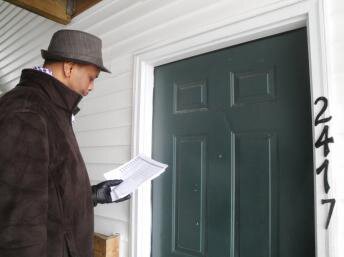
Mussa Farah
The SEIU also has its hooks in the Somali community. An SEIU Local 1 newsletter from last year appears to be written in the Somali language and shows pictures of Somalis in union garb campaigning against Republican U.S. Rep. Steve Stivers. So it’s not surprising that poll observers reported seeing large groups of Somalis being hauled to the polling location in “union vans.” Recall Farah’s comment about how vulnerable members of the Somali community are: “Somebody can just change your mind and tell you if you blow yourself up and things…” Are union operatives pressuring Somalis to vote a certain way?
History often repeats itself. In 2010, a State House race in Missouri was decided by one vote. In the fallout of the requisite lawsuits, there were allegations that as many as 30 Somalis had been instructed to vote for certain candidates by their interpreters. One affidavit said:
That morning a group of three or four Somali adults came in to vote. None of the Somali’s were able to speak any English whatsoever. An adult male escorted them into the polling location. … The adult male stood over the women while they voted … instructing the women how to cast their vote and for whom to vote for.
Anyone know how to say “ACORN” in Somali?
While it’s difficult to discern the motives of the community organizers and union groups, we can try to determine whether they are breaking any laws. As a precinct election official and presiding judge in Ohio, I’d like to shed some light on alleged violations of Ohio voting laws discussed in the interviews. Should we be concerned that illegal aliens will steal the election in the Buckeye State? Back in September I explained “how to commit voter fraud in Ohio.” Unfortunately, the activities at the Morse Road location in Franklin County are a case study in how easy it would be to game the system here.
Ohio has some of the most generous early voting laws in the country, allowing voters to cast absentee ballots by mail or in person through the day before the election. The identification requirements for these early voters are less stringent than for voters on Election Day. Early voters need only provide a driver’s licence number (they needn’t show the license) or the last four numbers of their social security number or a copy of a state/military ID or a current utility bill, bank statement, government check, paycheck, or other government document. When voting in person before Election Day, no one examines these documents. The voter writes the identifying information on the form along with his name, address, and date of birth and signs it. The poll worker checks the name and address (but does not examine the ID) to see if it matches the name of a registered voter in the county. If everything is in order, the voter is processed and permitted to vote.
At the Morse Road voting location, Brenner interviewed Mike Neutzling, a Columbus resident and self-described “Tea Party Republican,” who reported seeing a “mass influx” of people being brought into the polling location by “what appeared to be union operatives with union transportation.” He said that one day he saw “20-30 Somali women in native garb who didn’t appear to be able to speak English.” Neutzling wondered if they were American citizens and added that precinct officials “won’t take ID from you, even if you try to force it.” He said it was their protocol not to check ID. In fact, this is the proper protocol under the Ohio Revised Code.
Another issue that comes up in Brenner’s interviews is whether the people being bused in by the unions are American citizens. First, let me say that I am not advocating singling people out because of the way they are dressed or the way they look. That’s not a reason to pull someone out of the line on Election Day. My own grandparents were immigrants who spoke broken English and dressed like they were “from the old country,” as they called it. My grandmother always wore a babushka when she left the house and looked very different from the grandmothers of my anglo friends, so I understand the concerns. My intent is to address the election law issues as they relate to this story.
The first is that there is no proof of citizenship required to vote in Ohio. The registration form simply requires the voter to check a box affirming that he is a U.S. citizen—it’s on the honor system. In fact, election officials are not permitted to ask for proof of citizenship. The ID requirements to register are the same as for absentee ballots. So it would not be difficult for an illegal alien to vote in Ohio. In fact, it’s quite easy to register to vote using a utility bill as the only form of identification. Electors are permitted to challenge the citizenship of individual voters (the challenge period ends 20 days before the election), but the verification involves a Board of Election official asking the voter, “Are you a U.S. citizen?” If the voter answers in the affirmative, then for Ohio voting purposes, he is a U.S. citizen. End of challenge. End of story.
Brenner makes a good point in her Human Events article that in order to become a U.S. citizen, one must demonstrate the ability to read, write, and speak English and that the test is even given in English. How exactly did these individuals pass the citizenship test if they cannot read English well enough to vote? Are we inflating grades on the U.S. citizenship test now, too? It’s a valid question to ask why these Somalis are unable to read English well enough to vote.
Bill MacCaughey, a volunteer with the Romney campaign who was handing out Republican sample ballots at the Morse Road location, said he was concerned about the lack of English skills. He said that he “came into the building and we saw Somali immigrants … some of them could not speak English.” Another person, interviewed off camera and remaining anonymous, identified herself as a “non-partisan poll observer.” She seemed very disturbed by what she saw:
I noticed two Somali men with an older, grandmotherly type Somalian woman in the voting booth. One looked like he might have been working there. The other accompanied her there. … The one that took her to the voting place, that was there with her, was pointing to each candidate and telling her to press the button.
There are several problems with this scene. The first is that while Ohio permits assistance in the voting booth, it is only under very limited circumstances: “by reason of blindness, disability, or illiteracy.” The law says that the voter must “declare” to the presiding judge that he is unable to mark his ballot. This section of the code does not define “illiteracy,” so it is unclear whether the legislature meant to include limited English proficiency in the definition of “literacy.”
An important part of this voter assistance provision in the law is that “any person providing assistance in the marking of an elector’s ballot under this section shall thereafter provide no information in regard to the marking of that ballot.” If the eyewitness account are correct, then the helpers are doing more than translating the text on the screens. They are violating the law if they are in any way suggesting how electors should vote. This would also fall under the category of electioneering. No person shall “… engage in any kind of election campaigning within the area between the polling place and the small flags of the United States placed on the thoroughfares and walkways leading to the polling place.” If we want to get really technical, no campaign materials whatsoever are permitted inside the polling locations, including those Republican and Democrat “slate cards” that are handed out in the parking lots.

One non-partisan observer interviewed for the Human Events article said that one of the interpreters “looked like he might have been working there.” Ohio law does allow for official interpreters to be present in polling locations if there is a need in a particular community (again, this raises the question of why American citizens need interpreters). Interpreters must go through training and their actions must be strictly non-partisan. I called the Cuyahoga County Board of Elections, which provides Spanish interpreters. I was told that they have both a Republican and a Democrat interpreter available and that voters may also bring a family member into the voting booth to interpret for them. It would be helpful for Ohio Secretary of State Jon Husted to provide clarification on whether or not voters may bring their own interpreters into the voting booth (under the literacy provision), especially when there is an official interpreter present.
In a follow-up to her Human Events article, Brenner visited the Morse Road voting center. She attempted to find the Somali interpreter working at the polls, but was told that he was “working” and too busy to talk to her:
I also asked about a person we will simply identify as “J,” the sole Republican Somali interpreter according to the Franklin County Board of Elections Public Information Officer, Ben Piscitelli. I was unable to meet J as I attempted to do. As the video and audio will verify, I was told they were “extremely busy,” even though the amusement park style line mazes were approximately three-fourths empty. After forcing the issue, the gentleman in the video did point out to me who J is, and assuming that was indeed J, I visually saw him working at one of the machines. There have been reports that there is not a Republican interpreter available. Depending on whom a voter may ask, it is possible someone is told that there is not a Republican interpreter considering no one knew who J was until the fourth person with whom I spoke.
First, I find it very disturbing that an elections official stonewalled and denied Brenner access to the entire polling location. The Ohio Revised Code makes it clear that the First Amendment protects the right of the media to be present in polling places during elections. Brenner should have been able to move freely about the building to observe all election procedures.
I also think it’s important to determine with certainty whether all interpreters at this location (and all voting locations, for that matter) are “official” interpreters, trained and paid by the Board of Elections. If so, they are prohibited by law from giving partisan advice. If they are there at the behest of a party or a special interest group, they are breaking the law. Official poll observers ought to be on hand to make sure there are no violations and to determine whether both parties have interpreters present.
These reports are very troubling and, unfortunately, there are few remedies. The date has passed for anyone to challenge voter registrations in Ohio and besides, the citizenship challenge provision has no teeth. The best that can be done at this point is to place poll observers in all voting locations to make sure everyone is at least following the laws as they stand, however minimal. Tea Party groups across the state have been recruiting and training poll observers to look for any violations on Election Day. Though they don’t have the authority to stop any illegal activity, they can report it to their county Board of Elections and ask for assistance and they can document what they see. Even after the fact, if the race somehow comes down to a game of inches, that documentation may be the deciding factor in this election. Sunlight is the best disinfectant, as they say.





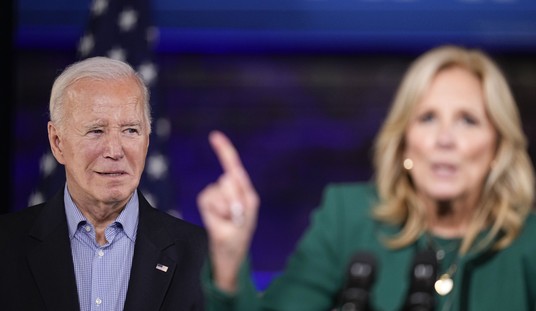
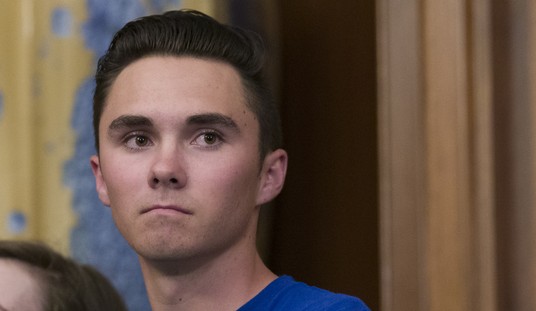


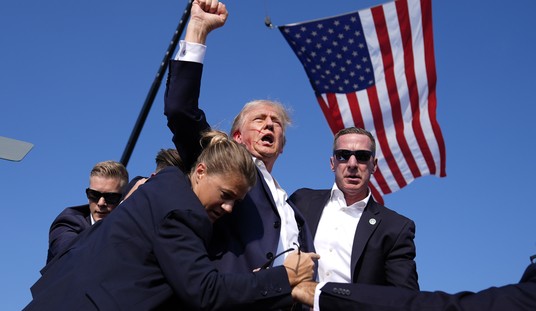
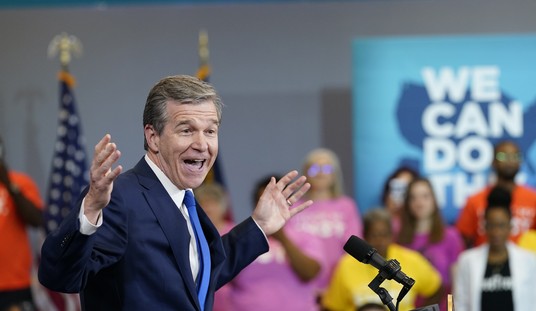
Join the conversation as a VIP Member